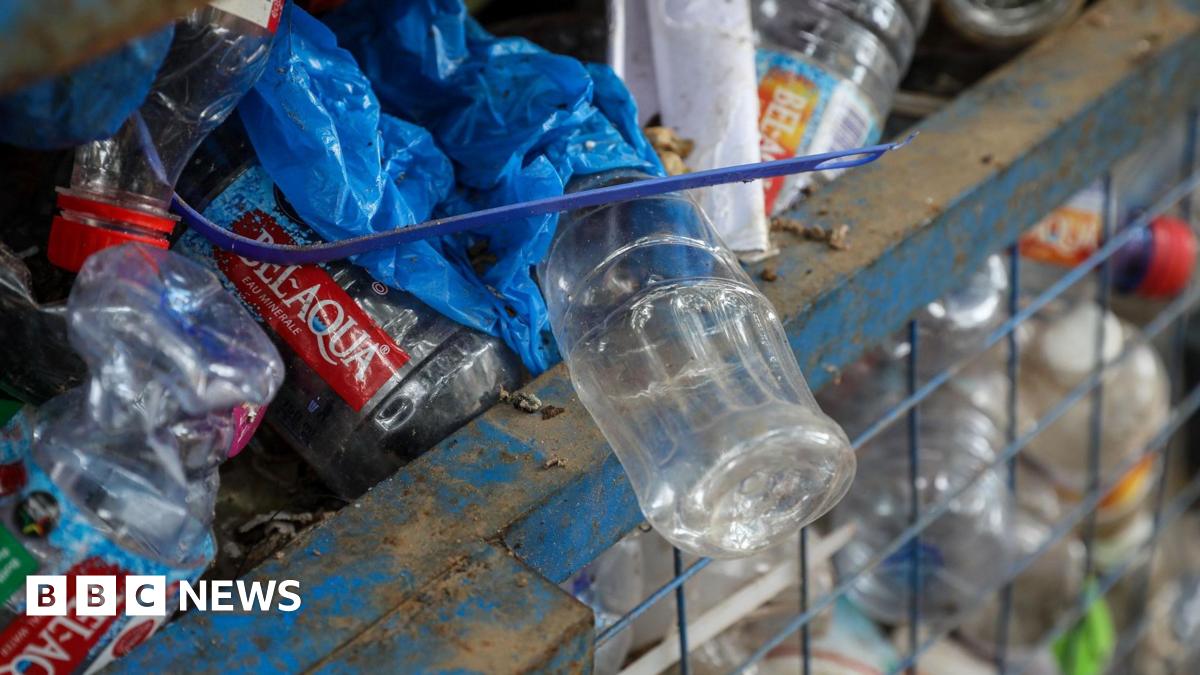In 2022, countries agreed a global treaty was needed in two years to tackle the issue.
That deadline passed in December 2024, after five rounds of negotiations, with no treaty having been signed.
On Tuesday, more than 170 nations will meet again to try to get a deal over the line.
The main issues they are trying to get agreement on include:
-
Targets on cutting the production levels of single-use plastics
-
Bans on some of the most harmful chemicals in plastic
-
Universal guidance on the design of plastic products
-
Financing of this effort
Products that have to meet consistent design standards can help to improve recycling, save costs and reduce the demand for virgin plastics, Rob Opsomer, executive lead of plastics and finance at the Ellen McArthur Foundation, which co-convenes the Business Coalition for a Global Plastics Treaty, told the BBC.
“So, to give you one example, a drinks bottle, if it is coloured, the value of what you can get from it if you sell the recycled material is half the value of a clear, uncoloured bottle,” he explained.
Nearly 100 countries, including the UK, are calling for an “ambitious” treaty which would include a commitment to limit production levels. But there has been strong opposition from a group of oil-producing nations including Russia and Saudi Arabia who want the talks to focus not on producing less, but recycling more.
Demand for oil in global energy and transport systems is expected to peak in the next few years as countries move to greener technologies. This could leave plastic as one of the few growth markets for the oil industry. Any efforts to limit production could pose short term economic damage to the petrostates.
But for those users of plastics not having clear, global regulations is costing them.
“It is a fundamental risk. Businesses don’t want packaging with their brand name on it to be littering the streets and our oceans,” said Mr Opsomer.
He said there was also the cost for businesses of having to comply with hundreds of new standards globally every year on plastics.
The Business Coalition, which includes some of the biggest global users of plastic such as Nestle and Unilever, is calling for governments to introduce coordinated taxes on their businesses to help pay for the cost of recycling and cleaning up plastic waste.
